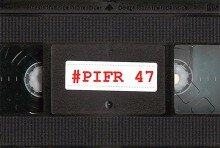Bottomless Deep
The general remembers Alterman.
Alterman grants his readers --or at least me, I can’t speak for all readers, only one – an extra dimension in addition to emotion: depth. It’s not that there aren’t others who write profound love poems, soulful poems. But Alterman’s approach to depth is without reservation; it is bottomless: no ground underfoot. Not just depth but an abyss. A bottomless deep. Alterman returns again and again to the image of water. In “The Foundling” the child is seen as though he is looking out from down inside a well, even though his mother has left him near the fence. Why down a well? Because it is deep, limitless, you can’t ever get to the bottom. There’s no ground, no bottom to the image of the well. It’s the same in “Michal and Michael.” Water and depth appear in this poem too, connected to a dialogue between the living and the dead, a conversation that continues after death. There is no end to emotion, so that life continues to be expressed even after death. Not life in a physical incarnation; this ends. But there is no bottom, no end to love, to devotion; they are like the heavens and like the way unfolding before us – you never see where they end.
This depth is expressed, not only in Alterman’s images such as water, wells and a dialogue that continues after death, but also in the depths of the things themselves. I remember once I happened to be at [Cafe] Kassit late at night and met Alterman. I had returned from some military action. We spoke. It was extremely uncomfortable to talk to Alterman about himself and about his poetry. But he had been drinking, and I was overwrought, and so I allowed myself to talk about Alterman’s poetry. I saw that he was listening to what I was saying. I spoke just to this point, about depth. I said that he aggravated the situation, deepened it. I told him: because of this, it is impossible to read what you write. You write poems like “The Foundling” and for the reader- it’s as if you’re engraving them with a knife on rusty iron. You know how the body shivers when those appalling screeches sound. Don’t you know what you’re doing, you hurt us so much. You reach down to the depths of the soul, but they aren’t words, they are knives.... Alterman listened and afterwards he said: “I understand what you are saying.” As though I hadn’t spoken about the poems that he, Alterman, had written. He said he understood what I, a reader, felt, as if these were two separate worlds, reader and writer.
(Excerpted from “Machbarot Alterman,” Hakibbutz Hameuchad Publishing House, 1981)



